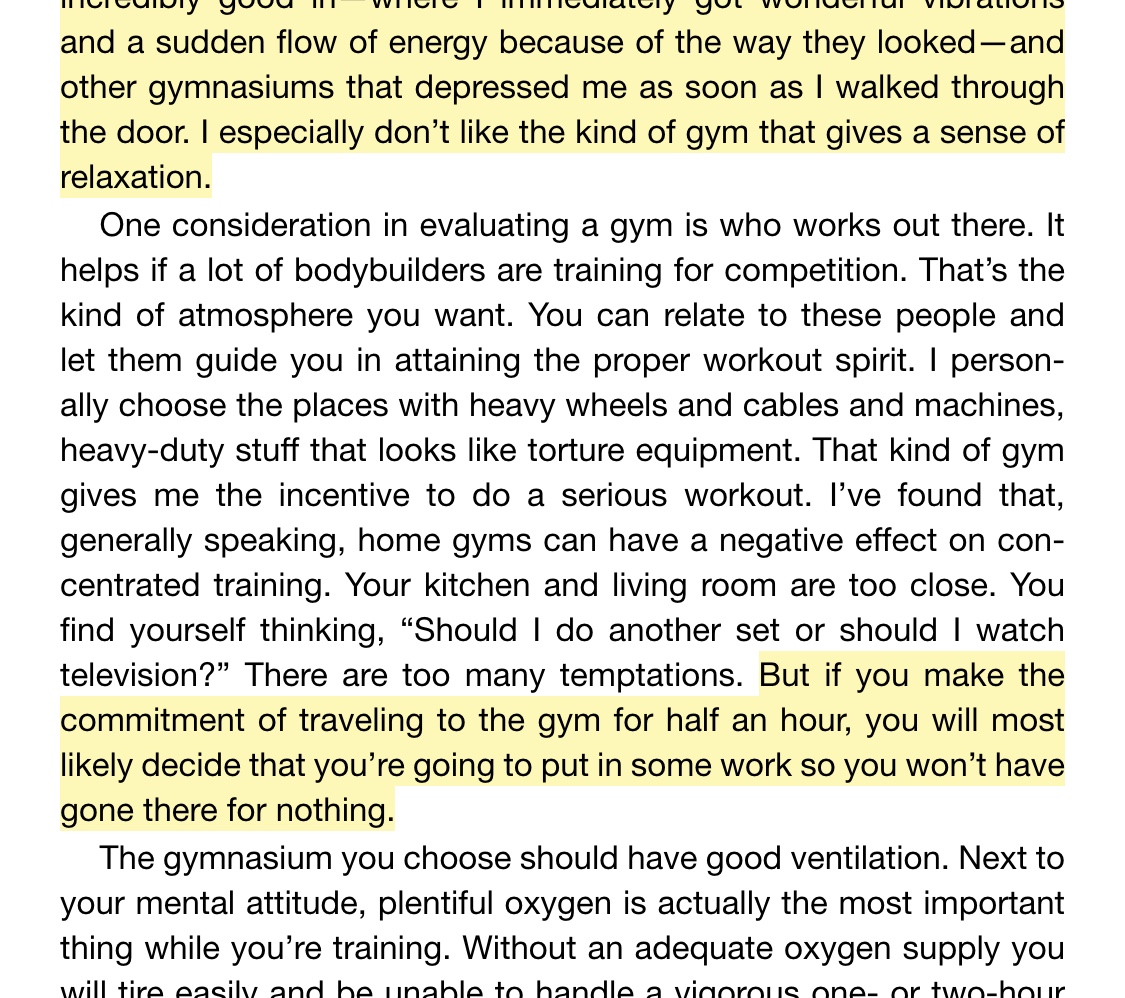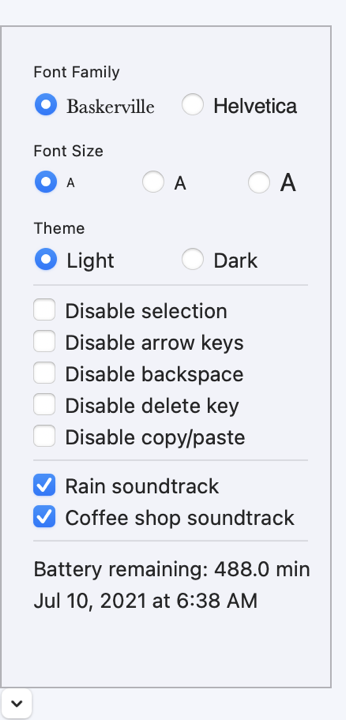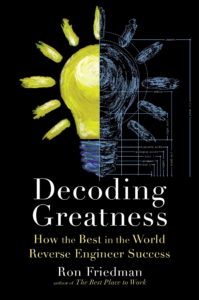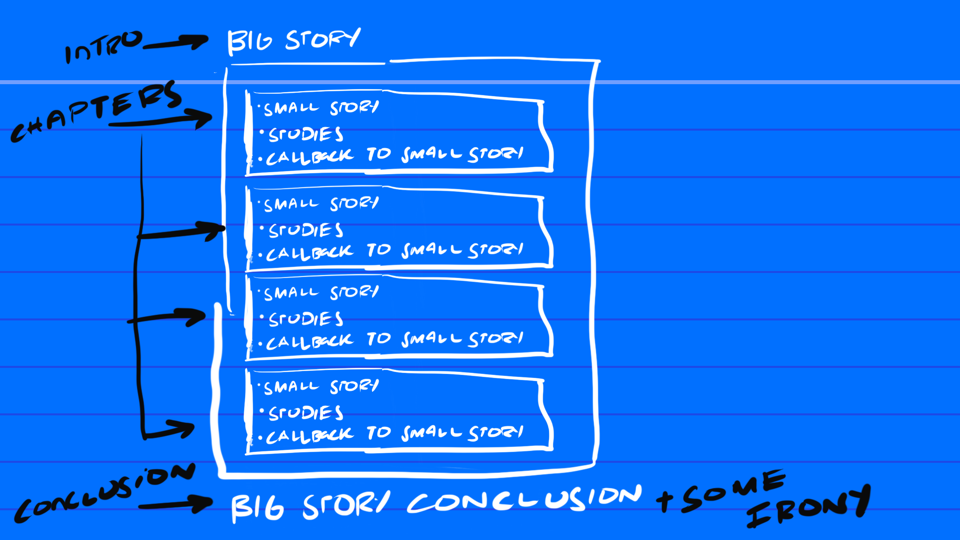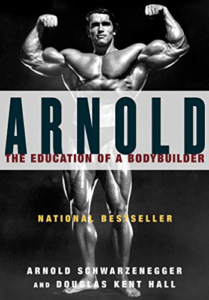
Check out the full notes for Arnold: The education of a bodybuilder
You walk in and sort of know where things will generally be but you still need to do some orienting.
New grocery store?
Good guess but in this case I’m thinking of new gym.
I’m writing this on the treadmill at a gym I joined this morning. It’s somewhere in between the two extremes Arnold presents here.
Depressed vs Relaxed:
Every gym makes me miss Chelsea Piers Fitness, which had the perfect blend of energy (sounds of competition from the basketball and volleyball courts) and relaxation (super clean, wide open spaces).
No sense longing for a gym on the other side of the country or a metabolism from a decade ago. I’ll be able to get my work done here.
As for the highlight about traveling and home gyms, I like both opposing ideas:
- Travel creates commitment
- Convenience creates commitment
Having the home gym is great and probably better if you can only pick one. In James Clear’s Atomic Habits framework, a useful question is “How can I make this easy?”
Some other questions that help you find answers:
- How can I make this convenient?
- What if I threw money at this problem?
Something I was running into with the apartment gym was just total weight available.
Yes, I wish I could say it’s because the dumbbells only go to 120 lbs so my chest presses were maxed out.
But it’s more like 50 lb and I just need to squat more.
Yes, you can and should get creative and work with what you have.
But another option was available: join a gym nearby.
I can save the creative thinking for creative work.
We’ll see if it changes anything.
